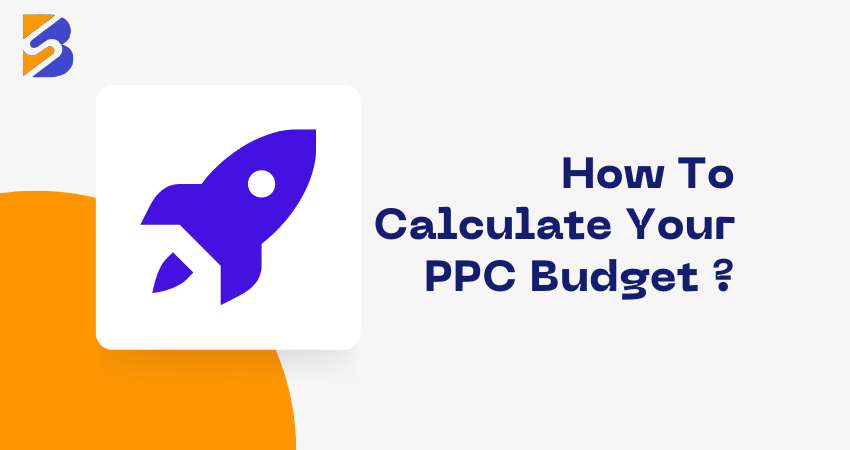Pay-per-click (PPC) advertising is an effective strategy to drive targeted traffic to your website and boost your online visibility. However, to maximize the potential of your PPC campaigns, it’s crucial to establish an appropriate budget. Allocating the right amount of funds ensures that you can achieve your advertising goals without overspending. In this blog post, we will guide you through the process of calculating your PPC budget, helping you make informed decisions and optimize your advertising efforts.
What Is PPC Budget and What Does It Depend on?
PPC stands for pay-per-click. It is a type of online advertising where you pay each time someone clicks on your ad. PPC ads are displayed at the top of search engine results pages (SERPs) when someone searches for a keyword that you are bidding on.
A PPC budget is the amount of money that you are willing to spend on PPC advertising each month. Your PPC budget will determine how often your ads are shown, and how high they appear in the SERPs.
There are a number of factors that can affect your PPC budget, including:
- Your goals: What do you hope to achieve with your PPC campaign? Are you looking to generate leads, drive sales, or increase brand awareness? Your goals will help you determine how much money you need to spend on PPC advertising.
- Your target audience: Who are you trying to reach with your PPC campaign? The more specific your target audience, the more targeted your ads will be, and the more effective they will be.
- Your competition: How much are your competitors spending on PPC advertising? You will need to set your budget high enough to compete with your competitors, but not so high that you are spending more than you are making.
- Your industry: The cost of PPC advertising can vary depending on your industry. Some industries, such as finance and healthcare, are more competitive than others, and this can drive up the cost of PPC advertising.
How to Calculate PPC Budget
Pay-per-click (PPC) advertising is a great way to drive traffic to your website and generate leads. However, it can be expensive, so it’s important to calculate your PPC budget carefully.
Define Your Advertising Objectives
Before diving into budget calculations, clearly define your advertising objectives. Are you aiming to increase brand awareness, generate leads, drive sales, or promote a specific product/service? Your objectives will shape your budget allocation strategy and help you measure the success of your campaigns.
Determine Your Key Performance Indicators (KPIs)
Identify the key metrics you will use to evaluate the performance of your PPC campaigns. These may include click-through rates (CTR), conversion rates, cost per acquisition (CPA), or return on ad spend (ROAS). Understanding your KPIs will assist you in setting realistic budget expectations.
Calculate Your Maximum Cost Per Click (CPC)
To calculate your maximum cost per click, consider the following factors:
- Average Conversion Rate: Determine the percentage of ad clicks that result in conversions. If your website typically converts 5% of visitors into customers, you can estimate that 5% of your ad clicks will convert.
- Average Conversion Value: Determine the average value generated from each conversion. This could be the revenue from a sale or the value assigned to a lead.
- Desired Profit Margin: Decide on the profit margin you aim to achieve from each conversion. This could be a percentage of the conversion value or a specific monetary value.
With these figures, you can calculate your maximum CPC using the formula:
Maximum CPC = (Average Conversion Rate x Average Conversion Value) x Desired Profit Margin
Consider Your Budgeting Period
Decide on the duration of your PPC campaign and the timeframe for your budget calculations. It could be a daily, weekly, monthly, or quarterly budget. Ensure that your budget is aligned with your advertising goals and the campaign duration.
Set a Realistic Budget
Now that you have determined your maximum CPC and your budgeting period, you can calculate your PPC budget. Multiply your maximum CPC by the estimated number of clicks you expect to receive within your budgeting period. This will give you an approximate budget to allocate to your PPC campaigns.
Monitor and Adjust
Once your PPC campaigns are live, closely monitor their performance and make necessary adjustments. Analyze the data, identify areas for improvement, and reallocate your budget based on the campaigns that deliver the best results. Continuously optimize your ads, keywords, and landing pages to increase conversions and ROI.
Cheat Sheet: PPC Budget Calculation Formulas
Here are a few formulas that you can use to calculate your PPC budget:
Total PPC Budget = Traffic needed x Average cost per click
This formula is used to calculate your total PPC budget based on the number of visitors you need and the average cost per click (CPC) for your keywords.
Expected revenue = Average order value x New customers
This formula is used to calculate your expected revenue from your PPC campaign based on the average order value for your products or services and the number of new customers you expect to acquire.
ROAS = (Revenue – Ad Spend) / Ad Spend
This formula is used to calculate your return on ad spend (ROAS) for your PPC campaign. ROAS is a measure of how much revenue you generate for every dollar you spend on PPC advertising.
How to Use the Formulas
To use the formulas, you’ll need to gather some information about your business and your PPC campaign. Here are some of the information you’ll need:
- Traffic needed: How many visitors do you need to your website each month?
- Average CPC: What is the average cost per click for your keywords?
- Average order value: What is the average value of an order from your website?
- New customers: How many new customers do you expect to acquire from your PPC campaign?
Conclusion
Calculating your PPC budget is a crucial step in effectively managing your pay-per-click advertising campaigns. By defining your objectives, understanding your KPIs, and considering factors like CPC and budgeting period, you can determine a realistic budget that aligns with your goals. Regular monitoring and optimization will help you make the most of your PPC budget and achieve optimal results from your advertising efforts.



